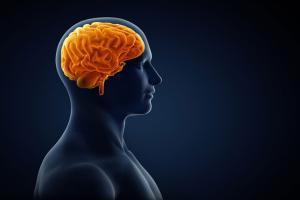Hypertension is the primary risk factor for haemorrhagic stroke and consumption of excessive salt could be one of the reasons

Representational Image
One in three people, between 30-69 years, living in India's northeastern states, suffered premature deaths due to haemorrhagic stroke in 2015, and were about three times higher than the national average, alarming research, led by one of an Indian-origin, has found.
ADVERTISEMENT
Hypertension is the primary risk factor for haemorrhagic stroke and consumption of excessive salt could be one of the reasons.
According to the study, high blood pressure, inadequate stroke care and novel risk factors such as endemic infections might have played a role in increased mortality rates in these regions, representing a sixth of the country's population.
The study, published in The Lancet Global Health, showed that cardiovascular diseases, comprising mostly ischaemic heart disease and stroke, accounted for more than 2.1 million deaths in India in 2015 at all ages, or more than a quarter of all deaths.
"The finding that cardiac disease rose nationally in India and that stroke rose in some states was surprising," said Prabhat Jha, Professor at the University of Toronto, in Canada.
"The study also unearthed an important fact for prevention of death due to cardiovascular diseases. Most deaths were among people with previously known cardiac disease, and at least half were not taking any regular medications," he added.
For the research, the team examined 472,113 deaths of individuals older than 15 years from 2001 to 2013, including 111,977 deaths due to cardiovascular disease -- 68,904 adult men (61.5 per cent) and 43,073 women (38.5 per cent).
High-burden states for male stroke deaths were Assam, West Bengal, Chhattisgarh, and the northeastern states (Sikkim, Arunachal Pradesh, Nagaland, Manipur, Mizoram, Tripura, and Meghalaya), and high-burden states for female stroke deaths were Assam, West Bengal, Odisha, Chhattisgarh, and the northeastern states.
At ages 30-69 years, of the 1.3 million cardiovascular deaths, 0.9 million (68.4 per cent) were caused by ischaemic heart disease and 0.4 million (28 per cent) by stroke.
Moreover, in less than two decades, ischaemic heart disease mortality in rural India has surged and surpassed that of urban areas, whereas stroke mortality has diverged across geographical areas.
As per World Health Organization estimates, India accounts for just over a fifth of cardiovascular disease deaths worldwide, where heart disease develops a decade earlier in life compared with high-income countries.
Without progress in India against cardiovascular diseases, the Sustainable Development Goals to reduce cardiovascular disease and non-communicable disease mortality by 2030 will be difficult to achieve, Jha said.
Catch up on all the latest Crime, National, International and Hatke news here. Also download the new mid-day Android and iOS apps to get latest updates
 Subscribe today by clicking the link and stay updated with the latest news!" Click here!
Subscribe today by clicking the link and stay updated with the latest news!" Click here!






